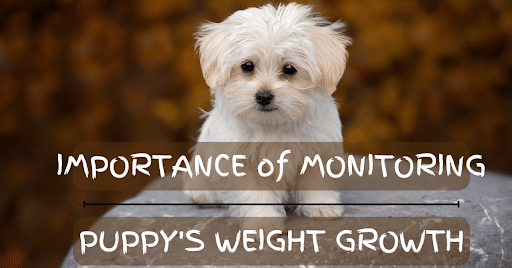For responsive pet care, the tracking of your puppy’s weight is a vital aspect. Just like human infants, their weight can be an important indicator of their overall health. You can manipulate the Puppy Weight calculator to get fast and exact puppy weight estimates for every major breed. This procedure helps you to avoid any type of health issues early on such as obesity and malnutrition.
Same as babies and puppies going toward a period of growth during a few months from their birth life. Therefore tracking the puppy’s weight regularly helps you to understand potential issues early on, that’s a reason it is crucial to ensure they are developing a healthy track. So, stay with us and make vital required adjustments to their diet routine to maintain their overall well-being. Read on!
Why Is Your Pet’s Weight Important?
Like humans, our pets may also have a variety of health issues if they gain or lose too much weight. With the help of weight, your veterinarians can assess the health of your pets. An increase or loss of weight may cause serious health issues in our furry friends, so routine checkups will help veterinarians diagnose any problem.
What Does Normal Puppy Weight Gain Look Like?
It might be quite challenging to know how much weight a puppy grows in each week, ideally, a puppy should start to gain weight from its birthday. Mostly a puppy should acquire ten to fifteen percent of its birth weight every day. For tiny and large breed puppies, normally, they gain weight of about 5 ounces and 2.5 pounds per week respectively.
Your Pet’s Weight And Health Conditions:
If your pets unfortunately suffer from diseases it may lead to gradual weight loss that may be undetected if not measured. Without changing your diet, if your dogs and cats continuously lose weight this is the symbol of any disorder.
Overeating and getting no exercise may cause weight gain, so if your pet is gaining too much weight due to some medical issues, checking their weight first will help you and your doctor in the identification of issues. Obesity causes various diseases in your pets like;
- Diabetes
- Arthritis
- Cardiac disease
- Renal failure
- Cancerous
- Shortened life span
How Much Food Should I Give My Puppy?
When feeding dogs, the proverb “Look at the dog, not at the bowl” is usually repeated. Actually, portion sizes are determined by the health of the body, not by the food eaten. Portion sizes are easily determined by the individual metabolism and body type, dogs have different dietary needs. Mostly the labels on packages of balanced dog feed specify the appropriate daily feeding amount, each dog is different, so you may still need to modify the quantity and frequency of feedings.
Since every brand of dog food has a different number of calories per kilogram (ME), feeding your puppy should be done on a regular basis. To get started, use the feeding amount specified on the food package. Adjust that amount by raising or lowering it to maintain your dog close to its ideal weight.
Why Do You Prefer To Live With Pets?
- These are the ways to affection and comfort
- This helps us to be more active
- This helps us to be made more socialize
- These can sniff out the medical condition and reduce the risks of illness
- These help us to reduce the stress level and can reduce blood pressure and anxiety
Nutrient Balance and Healthy Life Is Important:
Pup’s health can vary depending on many factors like carbohydrates, minerals, water, proteins, and fats. These are such factors that decide their health therefore, vital nutrients need to be available at every time. It also keeps in mind that a proper diet is also needed in a proper amount. So, before knowing these factors it is also important to know which the arising health risks due to the unbalanced diet are given as follows;
Arising Issues Due To Unbalanced Diet:
Look at the following issues that can arise from an unbalanced diet:
- Proteins low level has an impact on overall health rate
- Generally, skin problems are produced due to low amount of zinc
- Calcium and phosphorus balance is especially important in large-breed dogs because excess or insufficiency can cause skeletal issues.
Importance of Regularly Getting Your Pet Weighed:
It’s important to weigh your pet on a regular basis to ensure their general health and to avoid many diseases like diabetes, cardiac problems, and renal failure. This enables you to keep an eye on their weight increase or decrease, identify any possible health problems early on, and modify their exercise or diet plan as necessary.
Enabling prompt veterinary care and intervention to ensure your pet lives a long and happy life. So, the proper maintenance of optimal weight is necessary for avoiding various health problems. Therefore, early detection of health issues allows intervention and veterinary care to ensure your pets enjoy and long happy life.
How Can I Monitor My Puppy’s Growth?
Make use of a puppy weight calculator to get fast and precise calculations. There are some values required to get accurate evaluations. But always keep in mind that this can vary depending on some factors that are also discussed in the depth discussion. Your pet’s current weight is go through a couple of steps to determine what you need to do.
So be focused and let us move a little bit further:
Required Entities:
- Set your dog’s current age and also set the term in which you put the values
- In the same way, by setting the weight unit insert the current weight in the designated field
Results Summary:
- Total Adult Weight is
- The range in which your dog’s adult weight should fall
- A table in which your dog’s weight falls
Tips For Maintaining Healthy Puppy Weight Growth:
Following are some brief guidelines for sustaining a healthy puppy weight growth
- Provide a Balanced Diet: High quality diet is really suitable for dogs specially to enhance their age, weight and level of activity.
- Monitor Food Intake: With the increase in growth of your pups, you should adjust the amount of food you give them based on the recommended daily intake.
- Encourage Regular Exercise: Take your puppy for regular walks and play games because physical activity fosters the growth of muscles and aids in maintaining a healthy weight.
- Limit Treats and Snacks: You don’t want to overindulge your puppy in treats or snacks because they contain extra calories so choose healthful treats.
- Monitor weight regularly: To monitor your puppy’s growth pattern, weigh them on a regular basis. If you experience any unexpected weight gain or loss, speak with your doctor.
Seek veterinary guidance: See your vet on a regular basis for examinations and consultations. In addition to offering tailored guidance and recommendations, they can evaluate the weight, growth, and general health of your puppy.
Your Dog’s Weight Category:
| Dogs Categories | Average Weight |
| Toy dog | < 12 lb / < 5.4 kg |
| Small dog | 12 – 22 lb / 5.4 – 10 kg |
| Medium dog | 22 – 57 lb / 10 – 25.9 kg |
| Large dog | 57 – 99 lb / 25.9 – 44.9 kg |
| Giant dog | >99 lb / >44.9 kg |
Puppy Weight Chart:
Average Weight With Age Fluctuation:
| Age | Weight | Weight | Weight |
| 8 weeks | 2 lbs | 3 lbs | 4 lbs |
| 10 weeks | 2.5 lbs | 4 lbs | 5.5 lbs |
| 12 weeks | 3.5 lbs | 5 lbs | 6.5 lbs |
| 14 weeks | 4 lbs | 6 lbs | 7.5 lbs |
| 16 weeks | 4.5 lbs | 7 lbs | 9 lbs |
| 5 months | 6 lbs | 8.5 lbs | 12 lbs |
| 6 months | 7 lbs | 10 lbs | 14 lbs |
| 7 months | 8 lbs | 11.5 lbs | 16 lbs |
| 8 months | 9 lbs | 13.5 lbs | 18 lbs |
| 10 months | 11 lbs | 16.5 lbs | 22 lbs |
| 12 months | 13 lbs | 20 lbs | 27 lbs |
Frequently Asked Questions:
What Is The Ideal Weight Growth Rate For Puppies?
The rate of change in health rate varies in the case of puppies because there are many factors that have a great impact on their health. From the above graph, you can get fast and quick determination. However, from the date of birth puppies steadily gain weight but it also varies from breed to breed.
For Example:
- Small breed Puppies gain weight = 0.5-1 pound per week
- Large breed puppies gain weight = 2-4 pounds per week
Does Puppy Weight Matter?
Yes! For better health puppies’ rate really matters. Generally, when a pup is fully mature it will be heavier therefore, it is necessary to keep an eye on weight to know how big it will grow.
What Affects Puppy Growth?
There are many factors that can affect their growth including breed or size, illness and sex, and diet and environment.
At What Age Can You Predict Puppy Size?
The puppy weight calculator suggests that you double the weight of your pup at approximately 16 weeks. But this varies from breed to breed. The above tables help you to know the suitable weight. There’s no “one size fits all” according to doctors.
Last Words:
It is considered to be important to know that he is not suffering from any disease because the failure to gain weight is often the first sign of illness in puppies. For the first two weeks, weigh your pup daily you can repeat this process every week. Typically, for this purpose, a puppy weight calculator is used. You simply need to fill in your pup’s age in terms of days, months, and weeks, along with their current weight by setting a suitable unit.
At about 3 weeks of age, the puppies will begin to imitate the mother’s eating and drinking. But here you should like a daunting task to determine their weight to manage their diet. No need to worry, here we tell you about a puppy weight calculator that is free of cost and enables you to get fast and precise calculations within a couple of seconds.

 DogExpress
DogExpress





















 in Chandigarh, India.
in Chandigarh, India. 
